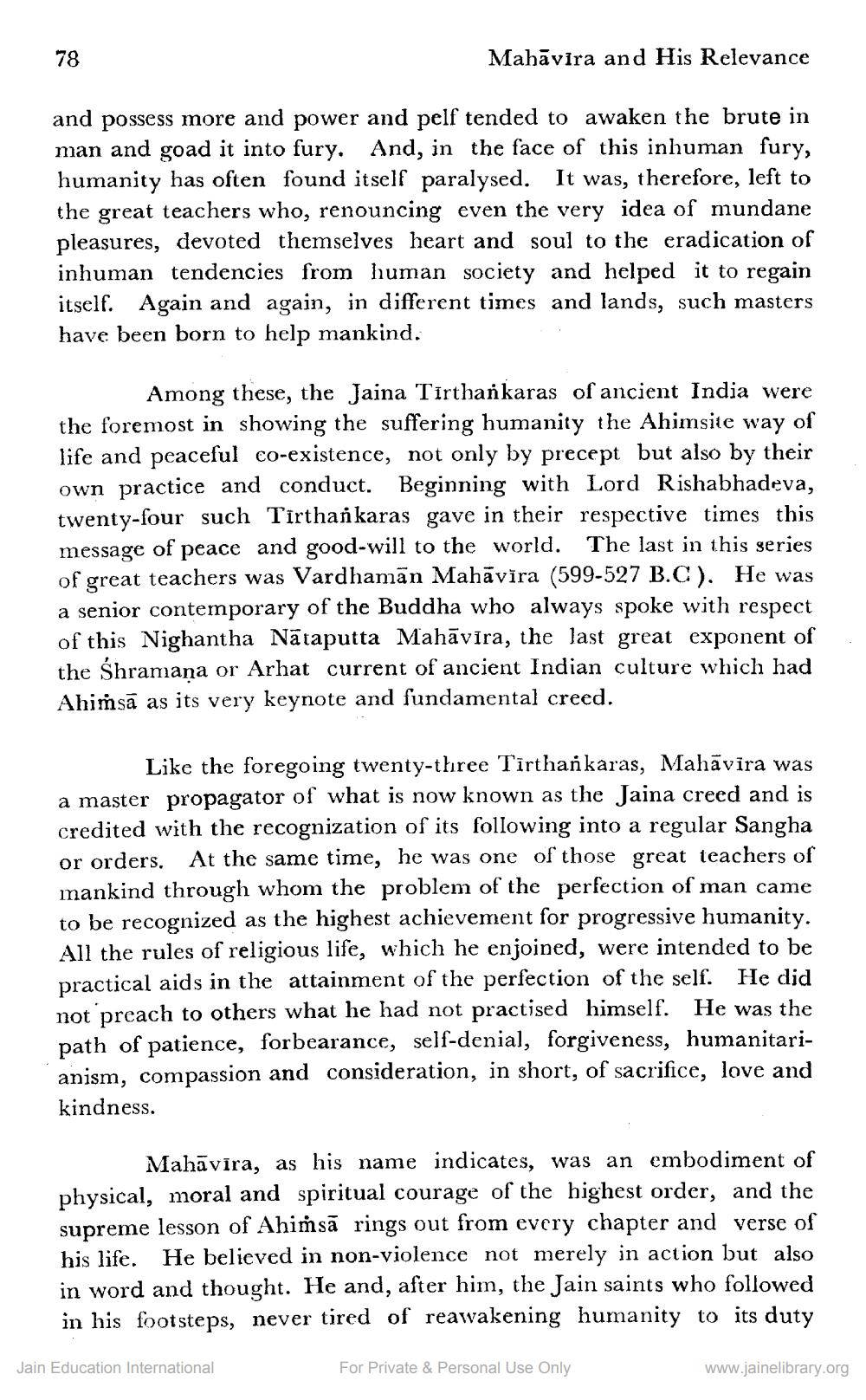________________
78
Mahāvīra and His Relevance
and possess more and power and pelf tended to awaken the brute in man and goad it into fury. And, in the face of this inhuman fury, humanity has often found itself paralysed. It was, therefore, left to the great teachers who, renouncing even the very idea of mundane pleasures, devoted themselves heart and soul to the eradication of inhuman tendencies from human society and helped it to regain itself. Again and again, in different times and lands, such masters have been born to help mankind.
Among these, the Jaina Tirtharkaras of ancient India were the foremost in showing the suffering humanity the Ahimsite way of life and peaceful co-existence, not only by precept but also by their own practice and conduct. Beginning with Lord Rishabhadeva, twenty-four such Tīrtharkaras gave in their respective times this message of peace and good-will to the world. The last in this series of great teachers was Vardhaman Mahāvīra (599-527 B.C). He was a senior contemporary of the Buddha who always spoke with respect of this Nighantha Näraputta Mahāvīra, the last great exponent of the Śhramana or Arhat current of ancient Indian culture which had Ahimsā as its very keynote and fundamental creed.
Like the foregoing twenty-three Tīrthan karas, Mahāvira was a master propagator of what is now known as the Jaina creed and is credited with the recognization of its following into a regular Sangha or orders. At the same time, he was one of those great teachers of mankind through whom the problem of the perfection of man came to be recognized as the highest achievement for progressive humanity. All the rules of religious life, which he enjoined, were intended to be practical aids in the attainment of the perfection of the self. He did not preach to others what he had not practised himself. He was the path of patience, forbearance, self-denial, forgiveness, humanitarianism, compassion and consideration, in short, of sacrifice, love and kindness.
Mahāvīra, as his name indicates, was an embodiment of physical, moral and spiritual courage of the highest order, and the supreme lesson of Ahiṁsā rings out from every chapter and verse of his life. He believed in non-violence not merely in action but also in word and thought. He and, after him, the Jain saints who followed in his footsteps, never tired of reawakening humanity to its duty
Jain Education International
For Private & Personal Use Only
www.jainelibrary.org




